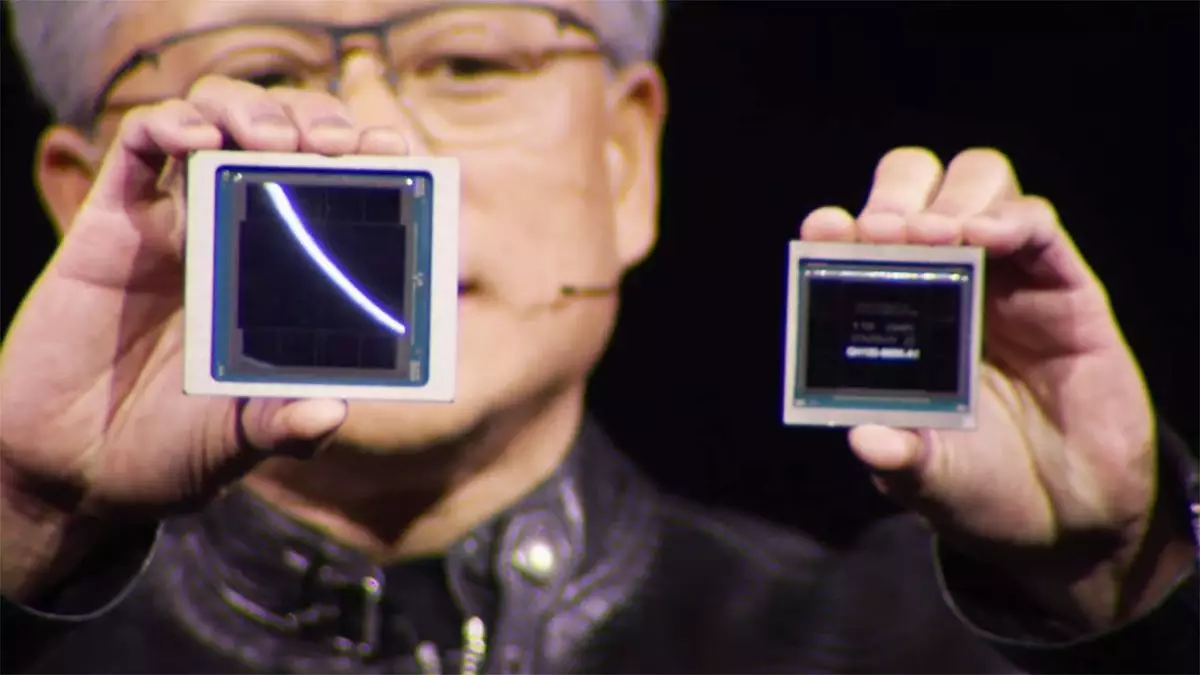Nvidia’s much-anticipated Blackwell chips are finally making their way into server environments, such as Microsoft Azure data centers. The excitement surrounding their rollout, however, has been tempered by revelations of significant production issues. Initially expected to launch seamlessly, the chips have not only arrived later than planned but may have been pushed to market prematurely. This raises questions about the production timeline and whether sufficient testing was conducted before their deployment.
A report from The Information, referenced by Business Korea, has shed light on concerning testing outcomes. Supposedly, during the initial post-announcement assessments, engineers discovered that the chips struggled under high-voltage conditions commonplace in data centers. This revelation came from sources with direct insight into the testing process, indicating that the chips may have been rushed. The implications are profound: a lack of thorough testing before launch could jeopardize reliability in critical server applications, raising doubts about Nvidia’s quality control protocols.
With the complications that have emerged in the Blackwell chips’ production, a blame game has ensued between Nvidia and TSMC, the chip manufacturer. TSMC alleges that Nvidia’s impatience accelerated the production timeline, while Nvidia counters that the defects stem from TSMC’s packaging technology. This exchange not only strains an arguably longstanding partnership but also highlights the intricacies and vulnerabilities inherent in tech supply chains. Such finger-pointing is not uncommon in the industry; however, it raises flags for stakeholders who depend on the reliability of these partnerships for the uninterrupted supply of advanced technology.
The ramifications of these potential defects are significant and multifaceted. If the Blackwell chips indeed exhibit reliability problems, they could disrupt services in various sectors that rely on robust data center operations. Problems now could further complicate Nvidia’s upcoming RTX 50-series graphics cards slated for early releases next year. The specter of rolling out another product with similar quality issues could severely tarnish Nvidia’s reputation, making it imperative for the company to address these defects diligently and transparently.
Amidst these manufacturing challenges, Nvidia may be considering its options, including possibly severing ties with TSMC in favor of Samsung. Sources suggest that Nvidia might pursue Samsung’s services again, aiming for a discount of 20-30% compared to TSMC’s pricing. However, such a move would not come without its challenges. Past collaborations between Nvidia and Samsung were fraught with difficulties, including price hikes and supply shortages. While the allure of a favorable pricing agreement is tempting, Nvidia may well be weighing the risks associated with choosing a potentially unstable partner.
Despite the current turbulence, TSMC remains a formidable player in semiconductor manufacturing. With a notable increase in sales and plans for new operations in regions like the Middle East, TSMC continues to thrive in a competitive market. The company’s ability to focus solely on third-party production provides it with an edge that Nvidia cannot ignore. The challenges that Nvidia is facing may serve as a negotiating chip to secure better terms rather than an outright shift in manufacturing partners, as TSMC might still be perceived as the more reliable option despite recent issues.
As Nvidia navigates these complexities with its Blackwell chips, the path forward will necessitate a careful balancing act among price, quality, and reliability. The semiconductor industry is undergoing rapid changes, and Nvidia must adapt to these evolving dynamics while ensuring that its products maintain their reputation for excellence. The story of Nvidia’s Blackwell chips is not just about current setbacks; it represents a broader narrative of strategic decisions that could shape the future of technology manufacturing. Stakeholders across the tech landscape will be closely monitoring the outcomes of these events, as they will have widespread implications for chip production and overall market dynamics.

